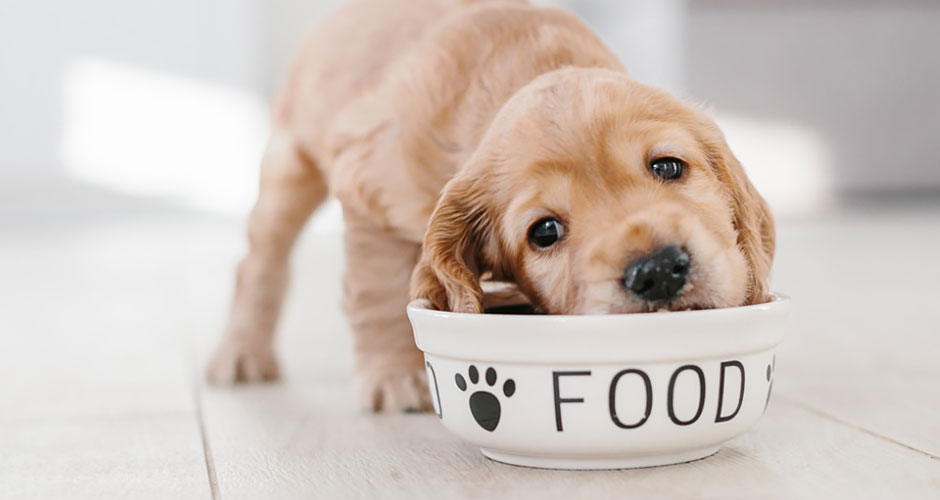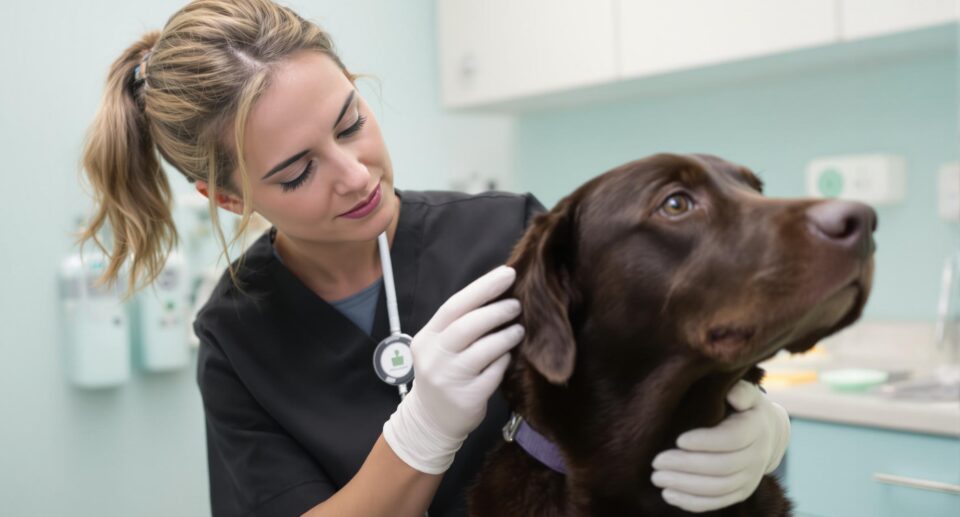Feeding Your New Puppy or Dog

A healthy diet supports your dog’s whole-body health and well-being. Premium puppy or dog food can support your dog’s growth and development, and can even help prevent or manage disease. How much you feed, and when, are just as important as which foods you choose to include in your dog’s diet.
Dry, Canned, or Dehydrated?
Your dog needs complete, balanced nutrition every day. Thankfully, it’s easy to provide your dog with wholesome nutrition with endless options in pet foods formulated to meet or exceed nutritional guidelines set by The Association of American Feed Control Officials (AAFCO). You can shop PetMeds.com to find a dog food to fits your dog’s unique nutritional needs, your schedule, and your budget.
Dry dog food is convenient and easy to feed and store. Crunching on dry kibble can help support your dog’s dental health, though feeding dry food is not a substitute for brushing and professional cleaning.
Canned dog food is high in moisture and protein. It can be fed as-is or combined with other foods as part of a complete diet.
Fresh dog food is generally high in moisture and protein and low in carbohydrates. It may need to be rehydrated or refrigerated.
How Much To Feed Your Dog
To fulfill your dog’s caloric and nutritional needs, you’ll need to feed an appropriate amount of a complete and balanced food. The feeding guidelines on the dog food packaging, set according to your dog’s weight, are a good starting point. Your dog’s suggested daily serving can be split into 1-3 meals throughout the day.
Dogs that are spayed or neutered, as well as those that are less active, need fewer calories. More calories are necessary for intact and highly active dogs, as well as growing puppies and pregnant and nursing dams.
What To Feed Your New Puppy
Most puppies should be fed “all life stages” or “puppy” food from eight weeks to about twelve months of age.
For small to medium-breed puppies, try Hill’s Science Diet Puppy Chicken Meal & Brown Rice Dry Dog Food, an excellent source of DHA to support healthy brain and eye development, plus clinically proven antioxidants to support your puppy’s developing immune system.
Large breeds should be fed a large breed puppy food like Hill’s Science Diet Puppy Large Breed Lamb Meal & Brown Rice Dry Dog Food, which is specially formulated to support healthy growth and musculoskeletal development in large and giant breeds. Large breed puppies should be fed puppy food for 18-24 months before transitioning to an adult recipe.
What To Feed Your New Adult Dog
For adult dogs 11 months and older, feed a premium adult or all-life-stages dog food.
Hill’s Science Diet Adult Perfect Weight & Joint Support Large Breed Chicken Dry Dog Food is made with premium chicken and whole grains to support healthy joints, immune system, and digestive health in dogs one to five years old. For small breed dogs, try Hill’s Science Diet Adult Small Bites Lamb Meal & Brown Rice Dry Dog Food.
When To Feed Your Dog
Your dog’s feeding schedule should be the same each day. Young puppies may eat 3-4 times per day, while older puppies and adult dogs six months and older may eat 1-3 times daily. Many pet parents find that feeding smaller meals throughout the day can be more gentle on your dog’s digestive system.
If you’re house-training your new puppy or if your adult dog has accidents, a consistent meal schedule can help by making your dog’s urge to eliminate more predictable. Keep in mind that it takes about eight to ten hours for your dog to digest a meal. Dogs usually need to defecate about 30 minutes after they eat.
Treats, Toppers, and Supplements
Treats, toppers, and supplements can make up to 10-15% of your dog’s diet. You can enrich their diet with whole foods like dog-friendly fruits and veggies, raw or cooked meat, eggs, or fish. Treats can be used as a training reward and can offer additional benefits like dental support. You can also try supplements like fish oil to support joint health or probiotics to support healthy digestion.





